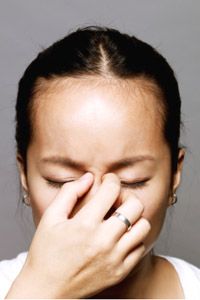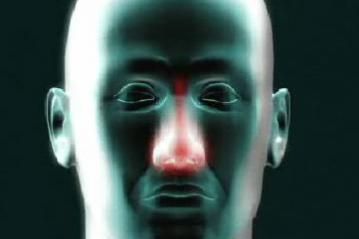A birch tree pollen allergy is like other pollen allergies, but there's a catch. Normally, pollen allergies are caused by the pollens in the air that trees, grasses and weeds release to fertilize each other. When any of the pollen you're allergic to lands on your eyes or nose, your immune system reacts. Your body releases an antibody called immunoglobulin E, and the antibody seeks out the allergens so that your mast cells can destroy them. In the process, chemicals are released -- including histamine, which is what causes your allergic symptoms.
In most cases, your birch tree pollen allergies will be at their worst when birch trees are in bloom in early spring. However, researchers have found that certain fresh produce can trigger allergic reactions in people with birch tree pollen allergies; people with such a condition are said to have pollen-food allergy syndrome, or oral allergy syndrome. While oral allergy syndrome isn't a true food allergy, it is often viewed as such. The proteins in the produce are similar enough to the birch pollen that they set off your immune system as though you breathed in pollen. The foods that most commonly trigger allergic reactions in people with birch pollen allergies are apples, carrots, celery, hazelnuts, peanuts, walnuts, peaches, pears and raw potatoes. Symptoms of a pollen-food allergy are itching and swelling around the mouth when you eat these foods. The good news is that when any of these foods are cooked, they're much less likely to trigger pollen allergies.
Advertisement
When it comes to preventing reactions from the foods that cause oral allergy syndrome, the easiest method is avoidance of the troublesome foods. To avoid the birch pollen itself, you need to keep an eye on the pollen counts that are published with your local weather forecast. Pollen counts tend to be highest in the early morning and in the early evening when the air is cooler.
Advertisement

